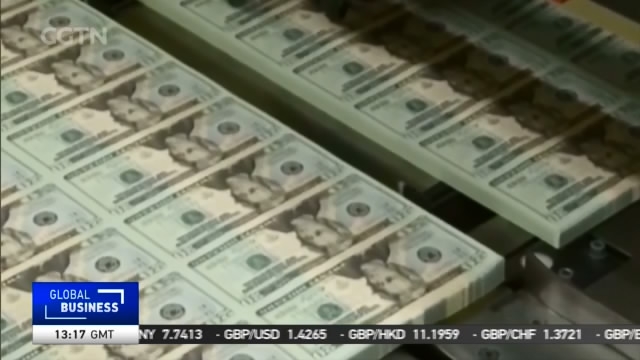
21:32, 13-Apr-2018
China-US Trade Tensions: Value of RMB increases 3.7% in Q1

Staying with China-U.S. trade. The value of the Renminbi against the dollar rose 3.7 percent in the first quarter. That was the Chinese currency's largest quarterly appreciation since 2008. How will the turbulence in the foreign exchange market affect exporters and importers? Our reporter Chen Tong takes a look.
The Renminbi's appreciation against the dollar started at the beginning of this year. The Renminbi's daily midpoint fixing has strengthened from 6.9 in January to some 6.2 now. The sharp performance of the currency is likely to hurt China's exporters, but experts are saying the impact should not be substantial. Yang Ge, does investments in both China and the United States, and he says his company has been preparing for exchange turbulence since the disputes between the two countries intensified in March.
YANG GE, FOUNDING PARTNER SKY SAGA CAPITAL "The impact on outbound investments are direct. If a trade war starts, costs for both sides will increase. Exporters to the US will be affected. The US industrial chain is not complete, it needs the rest of the world, and so many companies would have to adjust their business plans. Costs will go up, and efficiency will come down. We have locked in our exchange costs, so that won't have much of an impact on us. And we've hedged against the risks -- the turbulence actually helps us do that."
Customs spokesperson Huang Songping told a news conference today that the value of the Renminbi is now on a stable trajectory. Still, the experts say that second-quarter exports are likely to see a significant increase, because they will ship under contracts completed before trade tensions intensified.
ETHAN WANG STANDARD CHARTERED CHINA "The impact of trade tensions will lag into the second quarter. Export volumes in March and April will increase as many companies' export deals were done before tensions intensified. We should still wait, however, to see whether tensions will become so serious as to have a direct impact on the second quarter."
Recent reports show China's outbound investments in 2017 declined by some 30 percent compared with the previous year, as merger and acqusition values in Europe and the United States saw significant reductions. Chinese investments in Asia continued on the rise, however.

SITEMAP
Copyright © 2018 CGTN. Beijing ICP prepared NO.16065310-3
Copyright © 2018 CGTN. Beijing ICP prepared NO.16065310-3